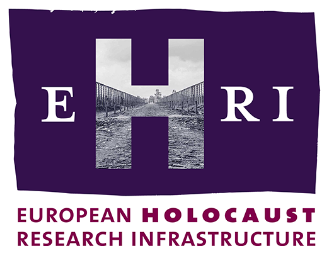Victim Databases | New perspectives on Holocaust research, education and remembrance

Date: 4-5 December 2024
Venue: National Archives, Prague, Czech Republic
What is the aim of the seminar?
The aim of the seminar is to evaluate the state of the art and critically reflect on the documentation of the names and fates of people who were persecuted during the Holocaust in the Czech lands and in Central and Eastern Europe. The meeting is part of a long-term effort of the Czech node of EHRI to discuss priorities and new approaches to databases of historical actors.
Preserving the identity and documenting the fate of the persecuted has been one of the pillars of Holocaust commemoration and research since its beginning. The collection of information began in secret during World War II and continued after liberation, when survivors returned from concentration camps or emigration. The result of this documentation was, among other things, the unique memorial in the Pinkas Synagogue (part of the Jewish Museum in Prague). From the 1990s onwards, intensive work was carried out on the preparation of the Terezín Memorial Books and on databases of the persecuted, some of which were made available online. The creation of these data was and remains part of transnational cooperation. The result is extensive and unique datasets on historical actors.
The expansion and addition of these data sources, however, is also a stimulus for critical discussion about their further development and use in the broader context of research on the Holocaust, genocides, forced migration and other topics. The digital turn in historiography, new methods in the digital humanities, and the revolution associated with artificial intelligence bring new possibilities, different heuristics, and more complex ethical questions.
The seminar will cover the following topics:
- New sources and reflection on gaps in documentation.
- Transnational cooperation and linking of sources (e.g. Arolsen Archives, cooperation of national EHRI nodes).
- New research questions enabled by large datasets.
- Digital approaches and tools, quantitative analysis, artificial intelligence.
- Ethical aspects of collection and disclosure of historical personal data in practice.
- Standardisation, unique identifiers, linking and accessibility.
- The use of data of the persecuted in Holocaust education and commemoration.
The seminar will also include a presentation of EHRI services at European and Czech level and hands-on presentation of the database of the Arolsen Archives which is now accessible in the National Archives in Prague. Applications for participation (with or without contribution) can be sent to ehri@mua.cas.cz until 15 October 2024.
